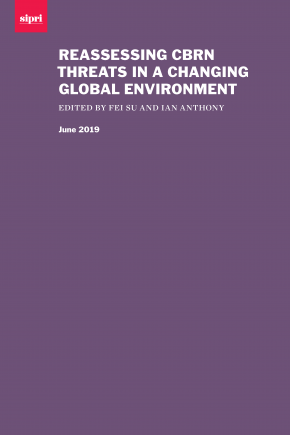SIPRI Publications: Reassessing CBRN Threats in a Changing Global Environment, June 2019
Threats related to chemical, biological, radiological and nuclear (CBRN) use are evolving rapidly alongside changes in the political environment and developments in technology. The continued use of chemical weapons (CW) in armed conflict has, in particular, underlined the fragile nature of existing arms control agreements. In addition, several recent attacks in Asia and Europe using toxic chemicals and radioactive materials suggest that a new concern—state-sponsored assassination or attempted assassination—must now be incorporated into national security policy. Such confirmed use of CBRN materials by both state and non-state actors in these contexts highlights substantial challenges that the world is facing. As such, it is imperative to identify the threats posed by the use of CBRN and to understand the obstacles that impede cooperation at both the regional and international levels. Strengthening barriers against the use of CBRN weapons by exploring the possibility for working collectively to safeguard and enhance existing international instruments is in the mutual interest of Asian and European states. On 14 January 2019, SIPRI held the expert workshop ‘Reassessing chemical, biological, radiological and nuclear (CBRN) threats and their implications for East Asia’. A number of key takeaways generated from the workshop are set out in this volume.
Fei Su is a Researcher within the China and Global Security Programme.
Dr Ian Anthony is the Director of the European Security Programme.
Fei Su is a Researcher within the China and Global Security Programme.
Dr Ian Anthony is the Director of the European Security Programme.
